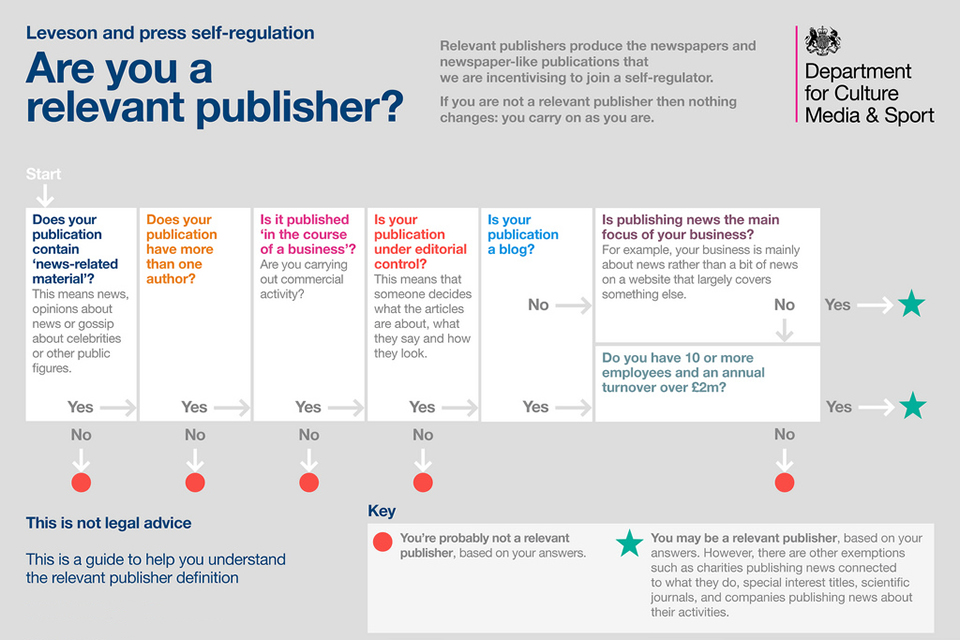Leveson: new proposals to ensure small blogs are exempt from exemplary damages and costs incentives for membership of a press regulator
Proposals for incentives as part of a new system of independent, self-regulation of the press have been refined to make sure ‘micro-business’ blogs are outside of the scheme.

The government’s Royal Charter proposes a new system of independent, self-regulation of the press which is one of incentivisation rather than compulsion. Those proposals are now being taken forward in the Crime and Courts Bill.
Following the initial debate in Parliament, we have refined the clauses to make it absolutely clear that small blogs are outside of the scheme.
The amendments, which have cross-party agreement, make clear that small blogs will not be classed as ‘relevant publishers.’ They will be considered by the House of Commons on Monday April 22.
Publications classed as a relevant publisher will be subject to incentives to join a press self-regulator. The incentives relate to exemplary damages and the awarding of costs in civil legal cases.

Four tests for publishers
The provisions in the Crime and Courts Bill clauses detail the four tests that must be met to be considered a relevant publisher, which are:
- publish ‘news-related’ material
- publish in the course of a business
- written by different authors
- subject to editorial controls
‘Micro-business’ blogs
The amendments clarify the government’s position on small blogs by further defining the exemption for blogs that are classed as ‘micro-businesses’ - business with fewer than 10 employees and an annual turnover below £2 million. This is the definition used by the Department for Business, Innovation and Skills.
Despite not falling under the definition of relevant publisher, any publication that is exempt as a micro-business as a result of these amendments could still choose to join a regulator and receive the legal benefits otherwise only available to relevant publishers in the regulator. That means protection from exemplary damages. It also means that use of the arbitral arm in the regulator will be taken into account by the court when awarding costs.
Additional exemptions
The clauses also list certain categories of publications which are exempt, even when those tests are met. These exemptions include special interest titles, scientific or academic journals, broadcasters and book publishers as as well as a public body, charity or company that publishes news about their activities.
Further information
- View our infographic explaining the ‘relevant publisher’ definition under these proposals
- Read our guide: Independent self-regulation of the press – who does it apply to?
- See all of the proposed amendments to the Crime and Courts Bill
- Draft Royal Charter for press self-regulator
- Leveson Inquiry website
Updates to this page
-
Included links to new documents - Leveson guide and amendments to the Crime and Courts Bill
-
Added relevant publisher diagram.
-
First published.